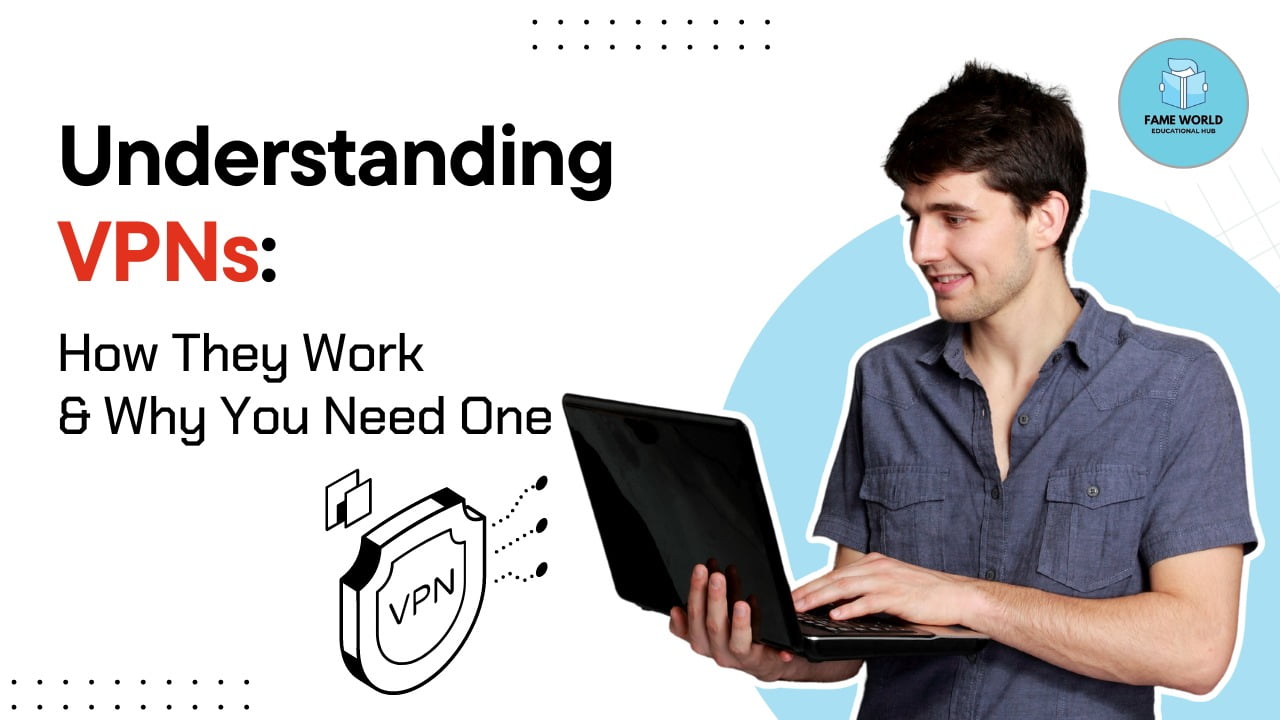In today’s digital age, online privacy and security are paramount. As we navigate the vast internet landscape, threats lurk around every corner—be it hackers, data snoopers, or intrusive advertisers. One tool that has gained immense popularity for safeguarding our online activities is the Virtual Private Network (VPN). This blog post will delve into what VPNs are, how they function, and why you should consider using one.
Table of Contents
What is a VPN?
A Virtual Private Network (VPN) is a service that creates a secure, encrypted connection between your device and the internet. It routes your internet traffic through a remote server, masking your IP address and ensuring that your online actions remain private. Essentially, a VPN allows you to browse the internet as if you were in a different location.
Interactive Quiz: Do You Need a VPN?
Do you frequently use public Wi-Fi networks?
- Yes
- No
Are you concerned about your online privacy?
- Yes
- No
Do you want to access content that is restricted in your country?
- Yes
- No
If you answered “Yes” to any of these questions, a VPN may be a good option for you!
How Does a VPN Work?
Understanding how a VPN operates is key to appreciating its benefits. Here’s a breakdown of its primary functions:
Encryption
When you connect to a VPN, your internet traffic is encrypted, meaning that it is converted into a code that is unreadable to anyone except those with the decryption key. This encryption ensures that your data is secure from prying eyes, including hackers and internet service providers (ISPs).
Tunneling Protocols
VPNs use various tunneling protocols to create a secure connection. These protocols determine how data is sent over the network and include:
- OpenVPN: An open-source protocol known for its strong security and flexibility.
- IKEv2/IPsec: A fast protocol that is often used for mobile devices.
- L2TP/IPsec: A combination of Layer 2 Tunneling Protocol and IPsec, offering security and speed.
Visual: How VPN Works
css
Copy code
[Your Device] --> [VPN Server] --> [Internet]
↑ ↑
| |
| Encrypted Connection
Why Do You Need a VPN?
Enhanced Security
VPNs offer a robust layer of security by encrypting your data, which is especially important when using public Wi-Fi. This makes it difficult for cybercriminals to intercept your information.
Privacy Protection
With a VPN, your real IP address is masked. This means that websites and online services cannot easily track your activities or identify your location, enhancing your overall privacy.
Bypass Geo-Restrictions
Many streaming services and websites restrict content based on geographical location. A VPN allows you to change your virtual location, enabling you to access content that may be unavailable in your region.
Safe Public Wi-Fi Use
Public Wi-Fi networks are often insecure, making them prime targets for hackers. Using a VPN on public networks encrypts your data, protecting you from potential threats.
Choosing the Right VPN
When selecting a VPN, consider the following factors:
- Security Features: Look for strong encryption, a no-logs policy, and a kill switch.
- Speed: Choose a VPN known for fast connection speeds, especially for streaming or gaming.
- Server Locations: More servers in diverse locations offer better access to geo-restricted content.
- Compatibility: Ensure the VPN works on your devices, whether it’s a smartphone, tablet, or computer.
- Customer Support: Reliable customer support can help you resolve issues quickly.
Interactive Poll: What Features Matter Most to You in a VPN?
- Security features
- Speed
- Number of server locations
- Compatibility with devices
- Customer support
Conclusion
In an era where online threats are increasingly prevalent, using a VPN is a proactive measure to protect your privacy and security. Whether you’re streaming content, shopping online, or simply browsing, a VPN can provide peace of mind and a safer internet experience.
If you’re ready to enhance your online security and privacy, consider trying out a VPN today!
Call to Action
Have you used a VPN before? Share your experience in the comments below! If you have any questions about choosing the right VPN or how to set one up, feel free to ask!
This interactive blog post aims to educate readers about VPNs while engaging them with quizzes, polls, and visual aids. If you have any specific sections you’d like to expand or modify, let me know!



